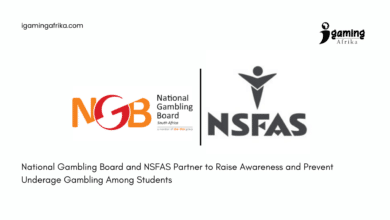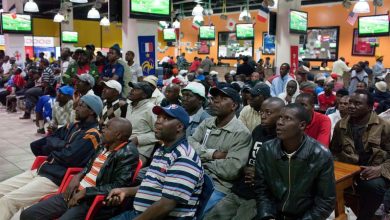Africa, iGaming’s Next Frontier

In part one of our exploration into Africa’s iGaming landscape, we examined the continent’s rapid digital growth and increasing appetite for online gambling. Now, we continue the conversation with insights from key industry figures who are actively shaping the region’s future. James Everett, VP Africa & LatAm at BetGames, Michael Bauer, CPO/CRO at Greentube, Brendon Jeacocks, Regional Director at Altenar, Toni Karapetrov, Head of Corporate Communications at Habanero, and Joe Andrews, Head of Sales – Africa at SIS.
They share their views on which African markets hold the most potential over the next decade and why cultural, regulatory, and economic differences make tailored, localised strategies essential for long-term success.
Why is it crucial to consider cultural, regulatory, and economic distinctions when tailoring products and solutions to each market, and what does successful localisation look like?
James Everett: Cultural, regulatory, and economic differences across Africa are substantial and must be considered when adapting products to specific markets. Each country offers a distinct set of conditions that directly influence how players engage with iGaming platforms.
For instance, mobile betting is prevalent in markets like Kenya, Nigeria, and Tanzania due to mobile-first internet access and widespread use of mobile money solutions such as M-Pesa. Conversely, South Africa’s more developed infrastructure supports a balance between mobile and desktop usage, along with a broader range of payment options including cards and e-wallets.
Regulatory environments also vary significantly. South Africa has a mature and structured licensing system, whereas Nigeria lacks a unified regulator, resulting in dependence on offshore operators. Meanwhile, Kenya and Tanzania feature more progressive frameworks that foster growth through mobile oversight.
Effective localisation, therefore, involves more than simply launching in a market — it entails adapting product accessibility, payment integration, promotional strategies, and user experience to mirror local behaviours and expectations. This approach not only ensures compliance with regulations but also enhances relevance and engagement with the target audience.
Michael Bauer: Africa’s diversity makes market-specific tailoring not just important, but critical. Cultural attitudes toward gambling vary widely. In some regions, it’s part of everyday entertainment; in others, it’s approached more cautiously. This affects everything—from the imagery in marketing campaigns to the tone of customer communications. Not understanding the complexities of regulations can lead to fines and failure altogether.
True localisation does not just mean translating existing structures for the new market, it means offering odds and formats players are familiar with, designing jackpot structures that align with local spending power, building lightweight mobile-first platforms, and offering customer support in relevant local dialects and via the channels widely used in those areas. The goal isn’t to retrofit a global product—it’s to build with local realities at the core.
Brendon Jeacocks: A product might cover the usual localisation basics like language, currency, and odds, but it can still miss the mark if it doesn’t reflect how people want to interact with operators. Cultural differences shape everything from risk tolerances to betting behaviours. Localisation should be deeper than the basics, it’s about building a product that can integrate smoothly with people’s daily lives and habits. As the newly appointed Regional Director at Altenar, this is part of my role. I am based in Cape Town and I have worked in the industry for almost a decade. By having my ear to the ground locally, I can advise on what local customers need so we can be first movers.
Toni Karapetrov: Each market across Africa comes with its own set of cultural, regulatory, and economic realities, and understanding those is key to getting it right. A game that resonates in one country might not connect in another unless it has been adapted to fit the local context.
For us, successful localisation means creating games that feel completely natural to the player – from the language and visuals to the way the game performs on their device – while ensuring every launch is fully compliant from day one. This careful balance is what helps Habanero deliver products that stand out and succeed across such a varied region.
Joe Andrews: Simply dropping a product into a market and expecting it to succeed does not work. It takes time for customers to engage, particularly in retail environments where shop space and connectivity can be stretched. Suppliers are fighting for TV and marketing space and convincing a shop manager to turn off a tried and tested game to trial a new one is a challenge, and a fair one. When launching something new like our number suite we try to work with the operator at the shop level to build awareness and offer marketing support. With the continual improvement of connectivity across the continent our live streaming will ensure the digital appeal of our products will grow even further and people can bet and watch racing, live lotto draws and SIS Competitive Gaming.
Read Also: Crypto Adoption in Sub-Saharan Africa Increased by 52% in June 2025
Successful localisation can mean tailoring products to the targeted market. Earlier this year, we expanded our 49’s partnership with Betway to deliver two additional daily live draws specifically for the South African market. The move was a testament to the impressive popularity our fixed-odds live draws have generated and is something we are keen to replicate moving forward. Its initial success highlights the impact of bespoke content in accommodating the local preferences of a market and the crucial role of integrity, for which 49’s is well known.
Which African markets hold the most potential for the coming decade?
James Everett: South Africa, with its continued investment in 5G infrastructure and mobile technology, is well poised to continue on its growth forecast for the coming years. The market benefits from a well-regulated industry, offering an attractive destination for international operators and providers. Nigeria has a booming population and fast-improving digital literacy, which is a key factor in its forecasted growth over the next decade. The rise of casino-based content should also go a long way in attracting a younger audience.
Similar factors are attributed to the Kenyan iGaming market, boosted by the government’s incentives for outside investment, which should go a long way to attract more funding. Similarly, Ghana’s growth in the iGaming sector is also projected to increase significantly over the coming years, boosted by its partnerships with international tech giants, which contribute significantly to its responsible gambling initiatives. Other growth regions include Tanzania, the Democratic Republic of Congo, Malawi and the Francophone region.
Michael Bauer: Several markets stand out for different reasons. Nigeria, purely on the strength of its population size and mobile penetration, offers enormous potential. Kenya remains a powerhouse for mobile-first products—a space where we’ve seen strong performance.
Ghana and Tanzania are also emerging as exciting prospects. Both have stable environments, expanding mobile infrastructure, and less-saturated competitive landscapes—making them particularly attractive for new entrants with a solid localisation strategy.
However, each of these markets have their advantages and challenges and while one market may be attractive to a certain company, it may not be for another. At Greentube, our immediate focus is deepening our footprint in South Africa, where regulatory clarity and strong consumer demand, along with the vast experience and reputation of NOVOMATIC Africa create a robust growth platform. But of course, we’re also watching other markets closely, assessing where our expertise and market conditions align for sustainable, long-term growth.
Brendon Jeacocks: From an operator perspective, South Africa remains the most attractive market, particularly for those with the capital and patience to navigate a well-established and competitive environment. The infrastructure is mature, the regulator is consistent, and there’s a customer base that already understands betting.
Beyond South Africa, East African markets like Kenya and Tanzania continue to show great numbers. That said, international operators need to adapt both their software and strategies to suit these geos, which can make entry more complex in the short to medium term.
Toni Karapetrov: South Africa will no doubt remain a frontrunner thanks to its strong infrastructure and regulatory progress. But we also see massive potential in markets like Nigeria, Ghana, and Kenya: all of which have rapidly growing online audiences and fast-improving digital ecosystems. These are young, mobile-savvy populations with a clear appetite for online entertainment.
We also see future promise in lesser-explored regions that are only now beginning to open up to regulated online gaming. The long-term success in these markets will hinge on delivering mobile-first content, forming strong local partnerships, and staying agile as new regulations emerge. Habanero is prepared for that journey and excited by what lies ahead.
Joe Andrews: South Africa and Nigeria will continue to build on their upward trajectory due to their shared smartphone penetration, younger populations, and well-developed regulatory frameworks, particularly for sports-facing products. We are well-positioned to continue expanding our influence across both nations, as well as in Ghana, where there is continued strong growth.
However, there are several emerging territories which we are really excited about, which show huge promise with continued technological advancements, evolving regulations and strong sports culture. With the continent’s mix of established betting nations and high-growth emerging markets, Africa looks set to play a key role in the iGaming industry’s development, and SIS is well-positioned to cater to the rising demand.























